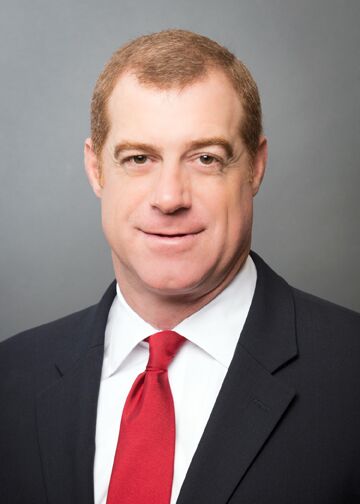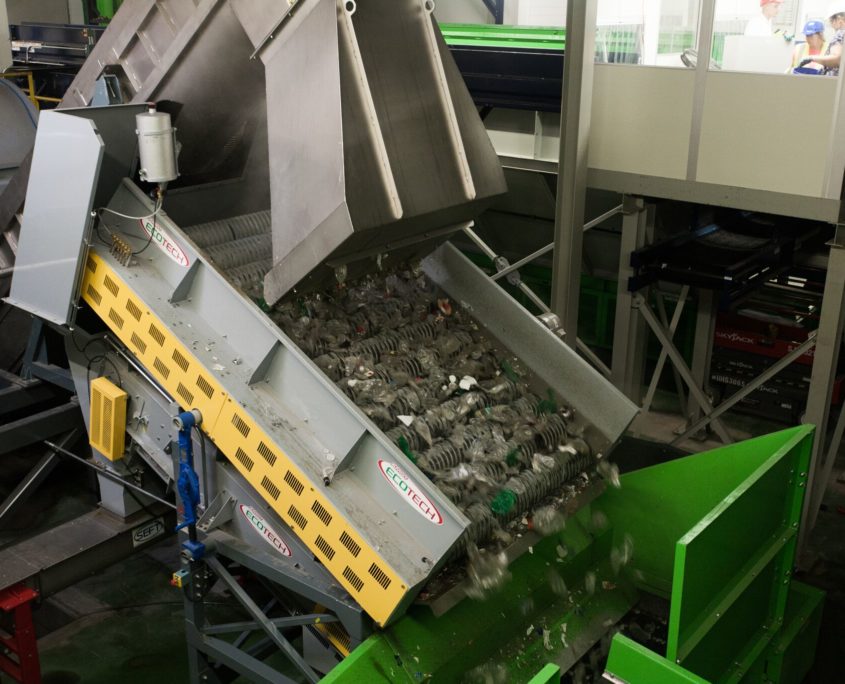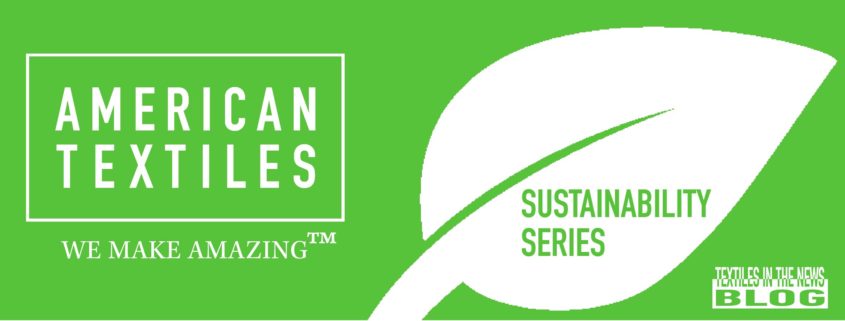American Textiles: We Make Amazing Sustainability Series – Unifi, Inc.
North Carolina-based Unifi Inc., a global producer of synthetic and recycled performance fibers, has been a leader in the industry—not only through its corporate culture and REPREVE® recycled performance fibers, which have touched every corner of the apparel supply chain, but also through campaigns and collaborations with organizations to raise awareness of the corporate stewardship aimed at mitigating the impact of manufacturing processes on the environment.
The company’s recycling efforts have been driven and widely adopted by the entire apparel supply chain.
Unifi’s REPREVE brand, launched in 2007, has transformed more than 19 billion plastic bottles into recycled fiber for new clothing, shoes, home goods and other consumer products made by leading brands. The company is on track to hit its goal of 20 billion plastic bottles in 2020.

Jay Hertwig, Unifi’s Senior Vice President of Global Sales and Marketing
The brand uses 45% less energy, 20% less water, and has reduced greenhouse gases by 30% versus virgin polyester production, according to Jay Hertwig, Unifi’s Senior Vice President of Global Sales and Marketing. The company’s total recycling of 20 billion bottles will offset the use of petroleum needed to produce virgin fiber, conserving 323.4 million gallons of water.
“REPREVE was born through a manufacturing excellence project where Unifi was trying to determine how we could be more efficient from an overall manufacturing standpoint. Even though we have a high production efficiency rate, we still produce waste,” Hertwig said. “We developed a product made from 100% waste in 2007. Patagonia and Polartec started demand for Repreve as Patagonia was looking for fleece with recycled content.”
REPREVE has come a long way in just a decade. The number of customers using Unifi’s recycled fibers has grown significantly—from those two brands in 2007 to more than 700 brands globally, according to Hertwig.
Moreover, Unifi has invested heavily in recycling technologies and manufacturing—more than $150 million—over the past decade.
The company now operates its own recycling center in Yadkinville, N.C., which opened in 2010, as well as the REPREVE Bottle Processing Center, a $28 million investment, which opened in 2016.
“We continue to grow our REPREVE production year over year. It has become almost 40 percent of the total production at Unifi today.”
Asked whether Unifi could achieve 100 percent REPREVE production, Hertwig said “Once we started to see demand grow for REPREVE, our vision formed to one day run 100 percent recycled REPREVE production. It’s a lofty goal that comes with many challenges, but one we still strive to meet.”
“As we continue to invest in sustainable and recycling technologies, Unifi expects a larger portion of our production will be REPREVE-based in the future.”
Green Movement and Congressional Scrutiny
As consumer awareness, activism around pollution and calls for more eco-driven products continue to deepen, lawmakers are also increasing scrutiny of plastic pollution in particular and considering proposals to curb it. Some experts have warned that similar bills could be proposed to target microfiber pollution from petroleum-based materials such as polyester, acrylic and nylon.
Hertwig addressed some of the underlying concerns from a sustainability perspective within the context of the end-goal that Unifi is pursuing—curbing pollution through recycling, while creating more cost-savings and efficiencies.
“There are many opportunities for increasing recycling, especially in the United States, where the recycling rate is less than 30 percent. Recycling around the rest of the world is much higher,” Hertwig said.
“We are actively working with our customers and our stakeholders to explore potential impacts that microplastics and microfibers have on the environment. All the while, we remain dedicated to diverting billions of post-consumer plastic bottles, and textile waste, from oceans and landfills. We feel this is one of the most effective ways to mitigate plastic pollution, including microplastics, and to help to shift our economy from linear to circular,” Hertwig added.
As more attention is paid to microfiber pollution in synthetic clothing, companies are taking a closer look at solutions, investing in testing and exploring the effects of fiber shedding.
“We’re working with some brands that are doing research around microfiber pollution. It is a challenge to be overcome—to prevent loose fibers—but laundry equipment manufacturers offer some solutions in terms of removable filter systems,” Hertwig said. “The majority of our production is filament yarn, and if the yarn and fabric is processed in the right way, the fabric doesn’t shed.”

Unifi is on track to meet its goal of recycling 20 billion plastic bottles by 2020 using its REPREVE® technology.
Champions of Sustainability
Hertwig said Unifi’s REPREVE brand is expected to have another good year.
“We are definitely seeing more and more demand in various supply chains that we have around the world for REPREVE and recyclable material in general.”
Unifi launched its sustainability awards in 2017 to recognize brands, retailers and textile partners that are committed to sustainable sourcing.
Unifi announced the recipients of its Third Annual REPREVE Champions of Sustainability Awards on Thursday, Feb. 13.
The awards were given to 26 brand and retail partners that transformed 10 million or more recycled bottles and 42 textile partners that each transformed 50 million or more bottles through the use of REPREVE performance fibers.
Unifi recognized several companies, including H&M which recycled more than a half billion bottles and Walmart and Quicksilver, which reached the quarter billion bottle milestone.
“What we wanted to do with Champions of Sustainability is recognize brands, retailers and fabric suppliers, and highlight their efforts in producing eco-friendly sustainable material with REPREVE,” Hertwig said. “It generated such a level of interest in the supply chain, that many brands, retailers and mills contacted us to learn more about how to be recognized for using Repreve. As the sustainability movement started to grow within their organizations, they wanted to make sure they were getting credit. It has been a surprisingly successful program.”
At the end of the day, Hertwig said Unifi aims to create a higher level of awareness. The REPREVE tagline is “For the Good of Tomorrow.”
“Part of our goal is to create awareness and also educate as many customers and consumers about the importance of recycling through our different marketing campaigns and event appearances,” he said. “We’ve been doing that with our REPREVE national mobile tour, which is relaunching later this spring. It’s traveling across the United States to brands, retailers and different sporting events promoting the importance of recycling, while showing consumers how a bottle can become a pair of shoes, a jacket or automotive seat material.”

Unifi’s REPREVE® on display outside of their factory in Yadkinville, North Carolina.


